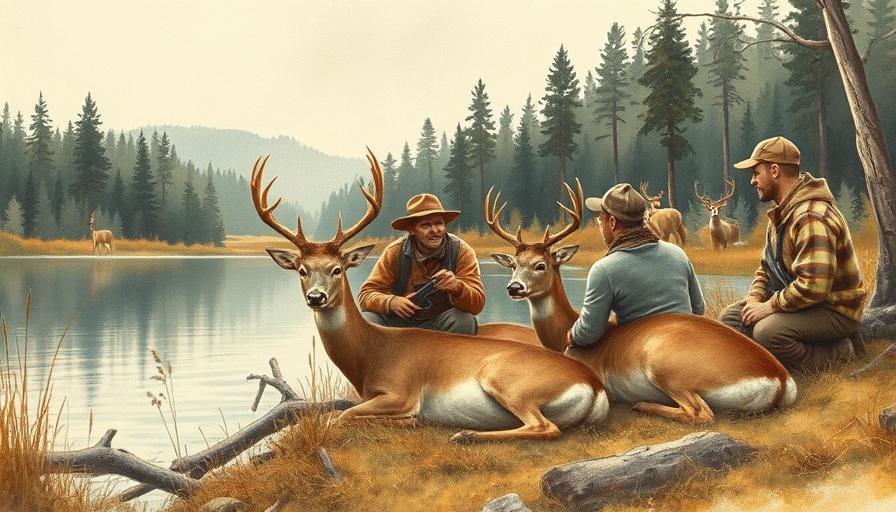
Rediscovering the Great Outdoors Through Youth Hunting
Inviting a child to experience deer hunting for the first time can be a transformative experience not just for them but for the adults involved as well. As parents and guardians embark on the journey of teaching a young hunter, they discover insights that go beyond just hunting — they learn valuable lessons about patience, environmental respect, and the joys of the outdoors.
Why Youth Hunting Matters
Hunting is not just about the thrill of the chase; it is an introduction to our heritage and an essential component of wildlife management. When teaching young hunters, the responsibility goes beyond just ensuring they know how to shoot. It's about fostering an appreciation for nature and respect for wildlife, as emphasized in Whitetail Properties. As families spend time together in the outdoors, they create bonds that last a lifetime, layered with shared stories and experiences.
Setting The Stage for a Memorable Hunt
To provide an engaging first hunting experience, proper preparation is essential. This includes checking state regulations, selecting appropriate hunting spots, and ensuring that the young hunter feels comfortable with the equipment. As noted in the insights from NRA's Youth Hunter Education Challenge, early engagement in settings that prioritize safety and education can significantly enhance a child's confidence in the field.
Building the Foundation of Responsibility
Hunting enables youth to understand the seriousness of taking a life. This can be a heavy realization, but it is an integral part of learning respect for wildlife. According to hunting expert Ben Harshyne, pre-hunt conversations about ethics surrounding deer hunting prepare young hunters for the emotional responsibilities they will face. It's crucial for adults to engage in these sensitive discussions, emphasizing the importance of honoring the animals they pursue.
Fostering a Sense of Fun and Adventure
One of the most important aspects of introducing children to deer hunting is ensuring that the experience is enjoyable. Avoid the pitfalls of pressure by letting the child dictate how much they want to participate. As veteran hunters suggest, incorporating games, storytelling during quiet times, and shorter hunting periods can help maintain interest. The goal is to create memories, not just to fill tags.
Long-Term Engagement with Nature
Engaging children in nature activities expands their world — from scouting trips to walking forest trails, hunting introduces youths to various aspects of biodiversity and environmental stewardship. An experience in the woods can kindle a love for nature, motivating kids to understand conservation and join efforts toward environmental sustainability. The greater community can support this movement through programs promoting outdoor education and local hunting rights, ensuring that hunting continues to be a beloved tradition.
Conclusion: The Lifelong Legacy of Hunting
The engagement of children in hunting can potentially shape their appreciation for the great outdoors, as they learn about responsibility, respect, and camaraderie within nature. While not every child will want to hunt, those who do will carry forward the values instilled in them, becoming part of the next generation of guardians of the environment. Let's cherish these opportunities and preserve our outdoor heritage for years to come.
 Add Row
Add Row  Add
Add 




Write A Comment